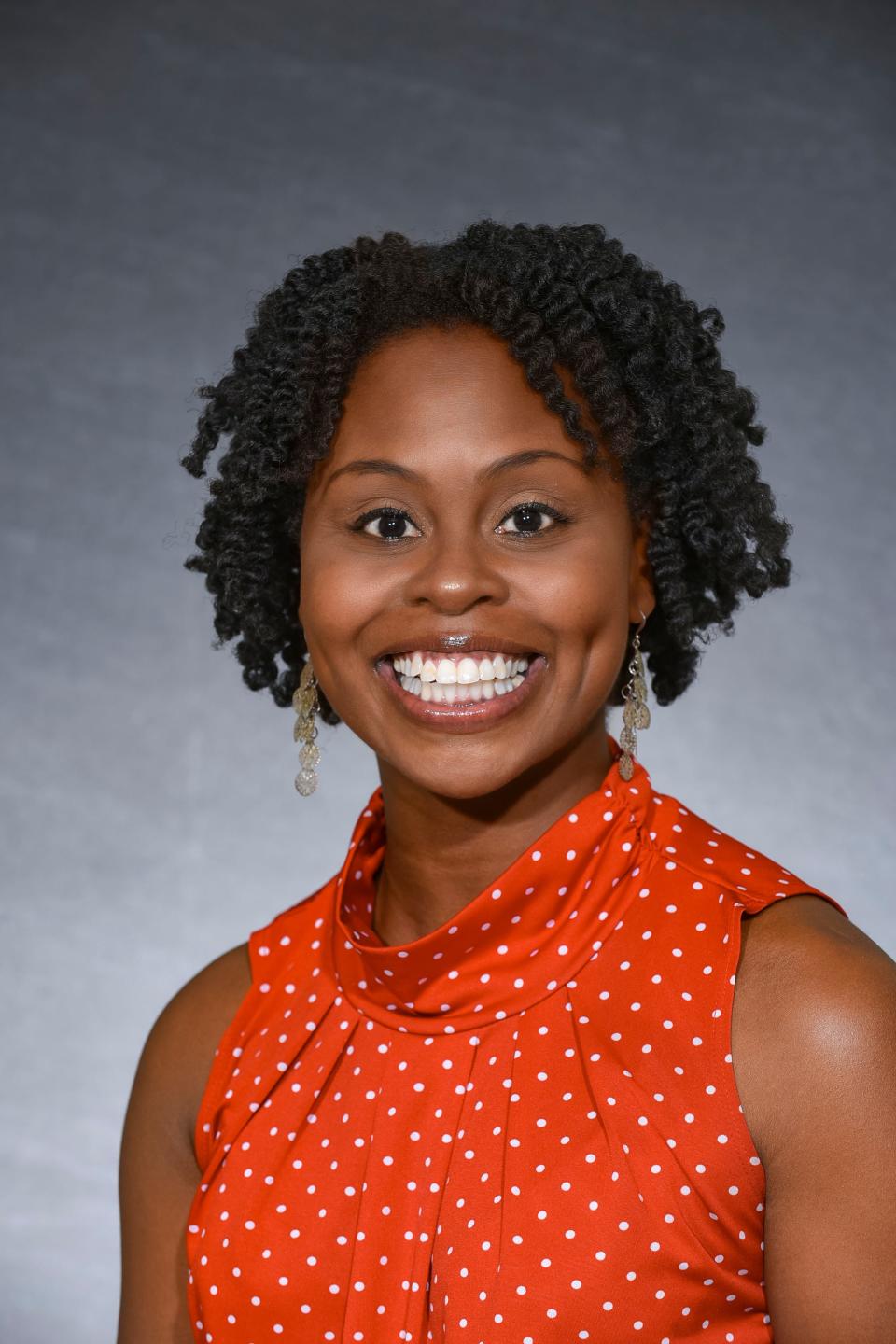After Buffalo shooting, I thought, “Will I be next?” Racial trauma is real | Opinion
My extended family lives in a Nashville ZIP code that is almost 75% Black. It is a community that has a rich and robust Black history.
Many years ago, the late state Sen. Thelma Harper led a campaign to build a grocery store in this community because it was considered a food desert.
Every Sunday after church, my family goes to that neighborhood, and I shop at the grocery store.
On Sunday, May 15, one day after a white supremacist brutally murdered 10 Black people at Tops Grocery store in Buffalo, I sat in my car in Nashville outside of the grocery store wondering if I should go in.
Tops Grocery store was located in a community that was 78% Black.
Like this Nashville community, the Buffalo community advocated for the grocery store because it was a food desert. The grocery store was the heart of the community, like this one is for this Nashville community.
My mind raced with different questions: Should I shop at another store in a different part of town? Should I scan the exits when I go in to make sure I know how to escape if a racist gunman attacks the store?
Should I shop for my extended family, so they don’t have to come to the grocery store this week?
Sign up for Black Tennessee Voices newsletter: Read compelling columns by Black writers from across Tennessee.
More from Carmen Reese Foster: Is it really OK to not be OK? What Cheslie Kryst's death tells us about empathy.
What does racial trauma look like?
Race-based trauma looks like over-analyzing what should be a typical run to the grocery store.

It looks like scanning buildings to see who looks friendly and who is seemingly threatened by my dark Black skin. It looks like saying multiple prayers as I exit and enter each building asking for protection and for an ally.
It looks like reading the slogans that people wear on their T-shirts and searching inked arms for white supremacy symbols.
Race-based trauma asks, “Will I be next?”
I made the decision to leave my older children in the car with my cell phone and told them that they could not go in. I raced through the aisles to get what I needed and then left quickly.
Hear more Tennessee Voices: Get the weekly opinion newsletter for insightful and thought provoking columns.
Sign up for Latino Tennessee Voices newsletter: Read compelling stories for and with the Latino community in Tennessee.
Our nation has not moved past racism
When people think about trauma, they often forget that simply being Black in America is a traumatic experience. Society will point to Barack Obama, Kamala Harris, or Kentanji Brown Jackson and talk about how we have advanced as a society on race issues.

But, when a heavily armed white 18-year-old writes a 180-page manifesto against Black people, and scouts out a Black community to kill as many people as possible all while live-streaming it, society is silent.
Those same folks that say we live in a post-racial society do not want to talk about the increase in hate crimes and white supremacist violence. They don’t want to talk about the toll that these horrific killings have on the mental health of Black people. They don’t want to talk about racial trauma and its pervasiveness in our society.
More: Tennessee black writers talk about racism, social unrest and next steps
It is time that we stop pretending that we have moved past racism in our society. Research shows that the only way to heal from the trauma is to first acknowledge that it exists.
We have to stop running from our truth if we ever want to heal as a society. We have to stop making excuses for white supremacist violence. The least we can do for the 10 individuals who lost their lives at Tops Grocery Store is to tell the truth.
On Sunday, I will go back to the grocery store in this beloved Nashville community, and I will walk in freedom. I will not be bound by the fear of racism or by the anxiety of racial trauma. I will shop in peace knowing that I am walking in my truth and working towards true healing in our society.
Dr. Carmen Reese Foster is a native Tennessean and is an assistant professor of practice, online field coordinator, and the director of alumni affairs at the University of Tennessee College of Social Work. She and her husband and three children reside in Bellevue.
This article originally appeared on Nashville Tennessean: Racial trauma: After Buffalo shooting, I thought, “Will I be next?”

